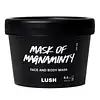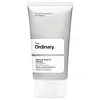What's inside
What's inside
 Key Ingredients
Key Ingredients

 Benefits
Benefits

 Concerns
Concerns

 Ingredients Side-by-side
Ingredients Side-by-side

Water
Skin ConditioningKaolin
AbrasiveSqualane
EmollientGlycerin
HumectantDimethyl Isosorbide
SolventSilica Cetyl Silylate
Salicylic Acid
MaskingSodium Polyacrylate
AbsorbentPentylene Glycol
Skin ConditioningCharcoal Powder
Abrasive4-T-Butylcyclohexanol
MaskingSclerotium Gum
Emulsion StabilisingAcacia Senegal Gum
MaskingXanthan Gum
EmulsifyingPhytic Acid
Polysorbate 20
EmulsifyingTrisodium Ethylenediamine Disuccinate
Chlorphenesin
AntimicrobialPhenoxyethanol
PreservativeWater, Kaolin, Squalane, Glycerin, Dimethyl Isosorbide, Silica Cetyl Silylate, Salicylic Acid, Sodium Polyacrylate, Pentylene Glycol, Charcoal Powder, 4-T-Butylcyclohexanol, Sclerotium Gum, Acacia Senegal Gum, Xanthan Gum, Phytic Acid, Polysorbate 20, Trisodium Ethylenediamine Disuccinate, Chlorphenesin, Phenoxyethanol
 Reviews
Reviews

Ingredients Explained
These ingredients are found in both products.
Ingredients higher up in an ingredient list are typically present in a larger amount.
Glycerin is already naturally found in your skin. It helps moisturize and protect your skin.
A study from 2016 found glycerin to be more effective as a humectant than AHAs and hyaluronic acid.
As a humectant, it helps the skin stay hydrated by pulling moisture to your skin. The low molecular weight of glycerin allows it to pull moisture into the deeper layers of your skin.
Hydrated skin improves your skin barrier; Your skin barrier helps protect against irritants and bacteria.
Glycerin has also been found to have antimicrobial and antiviral properties. Due to these properties, glycerin is often used in wound and burn treatments.
In cosmetics, glycerin is usually derived from plants such as soybean or palm. However, it can also be sourced from animals, such as tallow or animal fat.
This ingredient is organic, colorless, odorless, and non-toxic.
Glycerin is the name for this ingredient in American English. British English uses Glycerol/Glycerine.
Learn more about GlycerinKaolin is a clay. It is used for oil control and to help minimize pores. Like other clays, kaolin has the ability to absorb excess sebum or oil. This can help clean out pores and mattify the skin.
Some types of kaolin may have exfoliating properties. When water is added to kaolin, it becomes a paste with small abrasive particles.
Most kaolin is a white color, but may be pink/orange/red depending on where it comes from.
The name 'kaolin' comes from a Chinese village named 'Gaoling'. Kaolin clay comes from rocks rich in kaolinite. Kaolinite, the mineral, has a silicate layered structure. Kaolinite is formed from chemical weathering of aluminum siilicate minerals.
Besides skincare, kaolin is commonly used to make glossy paper, in ceramics, toothpaste, and as medicine to soothe stomach issues.
Learn more about Kaolin